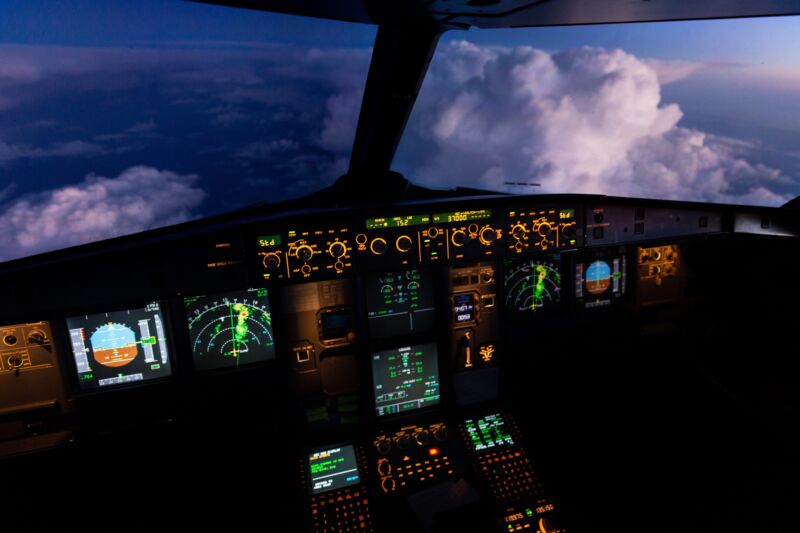
The Federal Aviation Administration says it finally has a plan for the industry to replace or retrofit airplane altimeters that can’t filter out transmissions from outside their allotted frequencies. The altimeter problem has prevented AT&T and Verizon from fully deploying 5G on the C-Band spectrum licenses the wireless carriers purchased for a combined $69 billion.
The FAA was urging airlines to retrofit or replace altimeters in recent months and now says it has finalized a plan. An FAA statement on Friday said that “airlines and other operators of aircraft equipped with the affected radio altimeters must install filters or other enhancements as soon as possible.”
AT&T and Verizon said they will be able to accelerate 5G deployments near airports in the coming months, but the carriers agreed to continue some level of “voluntary mitigations” in the airport areas until July 2023.
Altimeters are used by airplanes to measure altitude. The FAA said a new “phased approach requires operators of regional aircraft with radio altimeters most susceptible to interference to retrofit them with radio frequency filters by the end of 2022. This work has already begun and will continue on an expedited basis.”
Filters can be installed in a few hours
Additionally, “filters and replacement units for the mainline commercial fleet should be available on a schedule that would permit the work to be largely completed by July 2023,” the FAA said, continuing:
The radio-altimeter manufacturers have worked at an unprecedented pace with Embraer, Boeing, Airbus and Mitsubishi Heavy Industries to develop and test filters and installation kits for these aircraft. Customers are receiving the first kits now. In most cases, the kits can be installed in a few hours at airline maintenance facilities.
Throughout this process, the FAA will work with both industries to track the pace of the radio altimeter retrofits while also working with the wireless companies to relax mitigations around key airports in carefully considered phases.
FCC said 220 MHz guard band should be enough
The Federal Communications Commission in February 2020 approved mobile use in the C-Band, specifically from 3.7 to 3.98 GHz. As airplane altimeters rely on a spectrum from 4.2 GHz to 4.4 GHz, this left a 220 MHz guard band to protect altimeters from 5G transmissions.
The FCC found that harmful interference to altimeters was unlikely to occur “under reasonable scenarios” given the size of the guard band and power limits the FCC required for C-Band transmissions. The FCC also urged the aviation industry to conduct more research “on why there may even be a potential for some interference given that well-designed equipment should not ordinarily receive any significant interference (let alone harmful interference) given these circumstances.”
The FAA and aviation industry were nonetheless unprepared for the C-Band launches originally scheduled to begin in December 2021. AT&T and Verizon agreed to a nationwide delay for about six weeks and to limits on deployment near airports until mid-2022. The carriers last week agreed to keep some restrictions near airports in place for another 12 months.
“During initial negotiations in January, the wireless companies offered to keep mitigations in place until July 5, 2022, while they worked with the FAA to better understand the effects of 5G C-band signals on sensitive aviation instruments,” the FAA said Friday. “Based on progress achieved during a series of stakeholder roundtable meetings, the wireless companies offered Friday to continue with some level of voluntary mitigations for another year.”
https://arstechnica.com/?p=1861962

